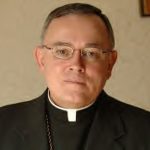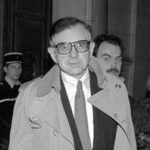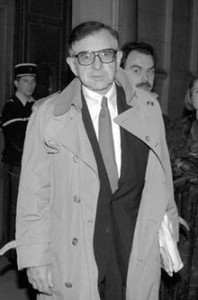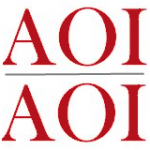
Deprecated: trim(): Passing null to parameter #1 ($string) of type string is deprecated in /home/aoiusa/public_html/wp-content/plugins/sexybookmarks/public.php on line 388
Deprecated: trim(): Passing null to parameter #1 ($string) of type string is deprecated in /home/aoiusa/public_html/wp-content/plugins/sexybookmarks/public.php on line 394
Deprecated: trim(): Passing null to parameter #1 ($string) of type string is deprecated in /home/aoiusa/public_html/wp-content/plugins/sexybookmarks/public.php on line 400

Read the essay below and you will understand why Orthodox Triumphalism is a dead end. The author is a Roman Catholic Archbishop and has an incisive grasp of American cultural and political history that applies as easily to American Orthodox as it does to American Catholics. We Orthodox don’t really grapple with what it means to be Orthodox in America, not much anyway. Instead we substitute ideas about ethnic affiliation or Orthodox supremacy or other impoverished notions thinking that that they will be enough to sustain the Church in the end. They won’t.
Affirming the good where ever we find find it is a fundamental tenet of Orthodox thinking and that includes the positive good that Protestants in particular and Catholics after them have contributed to American culture. And there is much good worth considering in Abp. Chaput’s analysis below.

Source: Roman Catholic Archdiocese of Denver | Archbishop Charles J. Chaput
March 1, 2011 – Most Rev. Charles J. Chaput, O.F.M. Cap., Archbishop of Denver, addressed the Berkley Center for Religion, Peace and World Affairs at Georgetown University.
A friend once said – I think shrewdly — that if people want to understand the United States, they need to read two documents. Neither one is the Declaration of Independence. Neither one is the Constitution. In fact, neither one has anything obviously to do with politics. The first document is John Bunyan’s The Pilgrim’s Progress. The second is Nathaniel Hawthorne’s The Celestial Railroad.
Bunyan’s book is one of history’s great religious allegories. It’s also deeply Christian. It embodies the Puritan, Protestant hunger for God that drove America’s first colonists and shaped the roots of our country.
Hawthorne’s short story, of course, is a very different piece. It’s one of the great satires of American literature. A descendant of Puritans himself, Hawthorne takes Bunyan’s allegory – man’s difficult journey toward heaven – and retells it through the lens of American hypocrisy: our appetite for comfort, easy answers, quick fixes, material success and phony religious piety.
Bunyan and Hawthorne lived on different continents 200 years apart. But the two men did share one thing. Both men – the believer and the skeptic — lived in a world profoundly shaped by Christian thought, faith and language; the same moral space that incubated the United States. And that has implications for our discussion today.
In his World Day of Peace message earlier this year, Pope Benedict XVI voiced his concern over the worldwide prevalence of “persecution, discrimination, terrible acts of violence and religious intolerance.”i In reality, we now face a global crisis in religious liberty. As a Catholic bishop, I have a natural concern that Christian minorities in Africa and Asia bear the brunt of today’s religious discrimination and violence. Benedict noted this same fact in his own remarks.
But Christians are not the only victims. Data from the Pew Forum on Religion and Public Life are sobering. Nearly 70 percent of the world’s people now live in nations — regrettably, many of them Muslim-majority countries, as well as China and North Korea — where religious freedom is gravely restricted.ii
Principles that Americans find self-evident — the dignity of the human person, the sanctity of conscience, the separation of political and sacred authority, the distinction between secular and religious law, the idea of a civil society pre-existing and distinct from the state — are not widely shared elsewhere. In fact, as Leszek Kolakowski once said, what seemed self-evident to the American Founders “would appear either patently false or meaningless and superstitious to most of the great men that keep shaping our political imagination.”iii We need to ask ourselves why this is the case.
We also need to ask ourselves why we Americans seem to be so complacent about our own freedoms. In fact, nothing guarantees that America’s experiment in religious freedom, as we traditionally know it, will survive here in the United States, let alone serve as a model for other countries in the future. The Constitution is a great achievement in ordered liberty. But it’s just another elegant scrap of paper unless people keep it alive with their convictions and lived witness.
Yet in government, media, academia, in the business community and in the wider culture, many of our leaders no longer seem to regard religious faith as a healthy or a positive social factor. We can sense this in the current administration’s ambivalence toward the widespread violations of religious liberty across the globe. We can see it in the inadequacy or disinterest of many of our news media in reporting on religious freedom issues. And we can see it especially in the indifference of many ordinary American citizens.
In that light, I have four points that I’d like to share with you today. They’re more in the nature of personal thoughts than conclusive arguments. But they emerge from my years as a Commissioner with the U.S. Commission on International Religious Freedom (USCIRF), and I believe they’re true and need to be said. The first three deal with the American experience. The last one deals with whether and how the American experience can apply internationally.
Here’s my first point: The American model of religious liberty is rooted in the thought-world and idea-architecture of the Christian humanist tradition. We cannot understand the framework of American institutions — or the values that these institutions are meant to promote and defend — if we don’t acknowledge that they grow out of a predominantly Christian worldview.
Obviously our laws and public institutions also reflect Jewish scripture, Roman republican thought and practice, and the Enlightenment’s rationalist traditions. But as Crane Brinton once observed with some irony, even “the Enlightenment [itself] is a child of Christianity – which may explain for our Freudian times why the Enlightenment was so hostile to Christianity.”iv
Whatever it becomes in the future, America was born Protestant. And foreign observers often seem to understand that better than we do. As many of you know, Dietrich Bonhoeffer, the German Lutheran scholar and pastor murdered by the Third Reich, taught for a time in New York City in the 1930s. He came away struck by the differences between the American and French revolutionary traditions, and the Christian character of American ideals.
“American democracy,” Bonhoeffer said, “is not founded upon the emancipated man but, quite on the contrary, upon the kingdom of God and the limitation of all earthly powers by the sovereignty of God.”v
As Bonhoeffer saw it, the American system of checks and balances, which emphasizes personal responsibility and limited government, reflects fundamental biblical truths about original sin, the appetite for power and human weakness.
Jacques Maritain, the French Catholic scholar who helped draft the U.N.’s charter on human rights, said much the same. He called our Declaration of Independence “an outstanding lay Christian document tinged with the philosophy of the day.” vi
He also said: “The [American] Founding Fathers were neither metaphysicians nor theologians, but their philosophy of life, and their political philosophy, their notion of natural law and human rights, were permeated by concepts worked out by Christian reason and backed up by an unshakeable religious feeling.”vii
That’s my point. At the heart of the American model of public life is a Christian vision of man, government and God.
Now, I want to be clear about what I’m saying here — and also what I’m not saying.
I’m not saying that America is a “Christian nation.” Nearly 80 percent of our people self-describe as Christians. And many millions of them actively practice their faith. But we never have been and never will be a Christian confessional state.
I’m also not saying that our Protestant heritage is uniformly good. Some of the results clearly are good: America’s culture of personal opportunity; respect for the individual; a tradition of religious liberty and freedom of speech; and a reverence for the law. Other effects of Reformation theology have been less happy: radical individualism; revivalist politics; a Calvinist hunger for material success as proof of salvation; an ugly nativist and anti-Catholic streak; a tendency toward intellectual shallowness and disinterest in matters of creed; and a nearly religious, and sometimes dangerous, sense of national destiny and redemptive mission.
None of these sins however – and yes, some of our nation’s sins have led to very bitter suffering both here and abroad — takes away from the genius of the American model. This model has given us a free, open and non-sectarian society marked by an astonishing variety of cultural and religious expressions. But our system’s success does not result from the procedural mechanisms our Founders put in place. Our system works precisely because of the moral assumptions that undergird it. And those moral assumptions have a religious grounding.
That brings me to my second point: At the heart of the American model of religious liberty is a Christian vision of the sanctity and destiny of the human person.
The great Jesuit scholar, Father John Courtney Murray, stressed that: “The American Bill of Rights is not a piece of 18th-century rationalist theory; it is far more the product of Christian history. Behind it one can see, not the philosophy of the Enlightenment, but the older philosophy that had been the matrix of the common law. The ‘man’ whose rights are guaranteed in the face of law and government is, whether he knows it or not, the Christian man, who had learned to know his own dignity in the school of Christian faith.”viii
I believe that’s true. It’s a crucial insight. And it’s confirmed by other scholarship, including Harold Berman’s outstanding work in the history of Western law, and his study of religious liberty and America’s founding.ix My point here is that the institutions and laws in what we call the “Western world” presume a Christian anthropology; a Christian definition of the meaning of life. In the American model, the human person is not a product of nature or evolution. He is not a creature of the state or the economy. Nor, for that matter, is he the slave of an impersonal heaven. Man is first and fundamentally a religious being with intrinsic worth, a free will and inalienable rights. He is created in the image of God, by God and for God. Because we are born for God, we belong to God. And any claims that Caesar may make on us, while important, are secondary.
In the vision of America’s Founders, God endows each of us with spiritual freedom and inherent rights so that we can fulfill our duties toward him and each other. Our rights come from God, not from the state. Government is justified only insofar as it secures those natural rights, promotes them and defends them.
And this is not just the curious view of some religious shaman. Nearly all the men who drew up our founding documents held this same belief. Note what James Madison said in his “Memorial and Remonstrance against Religious Assessments” in 1785:
“[Man’s duty of honoring God] is precedent both in order of time and degree of obligation to the claims of civil society. Before any man can be considered as a member of civil society, he must be considered as a subject of the Governor of the universe.”
That is why religious freedom is humanity’s first and most important freedom. Our first governor is God, our Creator, the Governor of the universe. We are created for a religious purpose. We have a religious destiny. Our right to pursue this destiny precedes the state. Any attempt to suppress our right to worship, preach, teach, practice, organize and peacefully engage society because of our belief in God is an attack not only on the cornerstone of human dignity, but also on the identity of the American experiment.
I want to add one more thing here: The men who bequeathed us the American system, including the many Christians among them, had a legion of blind spots. Some of those flaws were brutally ugly – slavery, exploitation of the Native peoples, greed, and ethnic and religious bigotry, including a crude anti-Catholicism that remains the most vivid religious prejudice this country has ever indulged.
But the American logic of a society based on God’s sovereignty and the sanctity of the human person has also proven itself remarkably capable of self-criticism, repentance, reform and renewal.
This brings me to my third point: In the American model, religion is more than a private affair between the individual believer and God. Religion is essential to the virtues needed for a free people. Religious groups are expected to make vital contributions to the nation’s social fabric.
For all their differences, America’s Founders agreed that a free people cannot remain free and self-governing without religious faith and the virtues that it fosters. John Adams’ famous words to the Massachusetts militia in 1789 were typical: “Our constitution was made only for a moral and religious people. It is wholly inadequate to the government of any other.”
When the Founders talked about religion, they meant something much more demanding and vigorous than the vague “spirituality” in vogue today. Harold Berman showed that the Founders understood religion in a frankly Christian-informed sense. Religion meant “both belief in God and belief in an after-life of reward for virtue, and punishment for sin.”x In other words, religion mattered – personally and socially. It was more than a private preference. It made people live differently. People’s faith was assumed to have broad implications, including the political kind.
From the beginning, believers – alone and in communities – have shaped American history simply by trying to live their faith in the world. As Nathaniel Hawthorne saw so well, too many of us do it badly, with ignorance and hypocrisy. But enough believers in every generation have done it well enough, long enough, to keep the animating spirit of our country’s experiment in ordered liberty alive.
Or to put it another way, the American experience of personal freedom and civil peace is inconceivable without a religious grounding, and a specifically Christian inspiration. What we believe about God shapes what we believe about man. And what we believe about man shapes what we believe about the purpose and proper structure of human society.
The differences among Christian, atheist, Hindu, Jewish and Muslim thought are not “insurmountable.” But they are also not “incidental.” Faith, sincerely believed or sincerely refused, has consequences. As a result, theology and anthropology have serious, long term, social and political implications. And papering those differences over with a veneer of secular pieties does not ensure civil peace. It ensures conflict — because religious faith touches on the most fundamental elements of human identity and destiny, and its expression demands a public space.
This brings me to my fourth and final point: I believe that the American model does work and that its principles can and should be adapted by other countries. But with this caveat. The Christian roots of our ideals have implications. It’s impossible to talk honestly about the American model of religious freedom without acknowledging that it is, to a significant degree, the product of Christian-influenced thought. Dropping this model on non-Christian cultures – as our country learned from bitter experience in Iraq – becomes a very dangerous exercise. One of the gravest mistakes of American policy in Iraq was to overestimate the appeal of Washington-style secularity, and to underestimate the power of religious faith in shaping culture and politics.
Nonetheless, I do believe that the values enshrined in the American model touch the human heart universally. We see that in the democracy movements now sweeping the Middle East and North Africa. The desires for freedom and human dignity live in all human beings. These yearnings are not culturally conditioned, or the result of imposed American or Western ideals. They’re inherent to all of us.
The modern world’s system of international law is founded on this assumption of universal values shared by people of all cultures, ethnicities and religions. The Spanish Dominican priest, Francisco de Vitoria, in the 16th century envisioned something like the United Nations. An international rule of law is possible, he said, because there is a “natural law” inscribed in the heart of every person, a set of values that are universal, objective, and do not change. John Courtney Murray argued in the same way. The natural law tradition presumes that men and women are religious by nature. It presumes that we are born with an innate desire for transcendence and truth.
These assumptions are at the core of the 1948 Universal Declaration of Human Rights. Many of the people who worked on that Declaration, like Jacques Maritain, believed that this charter of international liberty reflected the American experience.
Article 18 of the Declaration famously says that “Everyone has the right to freedom of thought, conscience and religion; this right includes freedom to change his religion or belief; and freedom, either alone or in community with others and in public or private, to manifest his religion or belief in teaching, practice, worship and observance.”
In a sense, then, the American model has already been applied. What we see today is a repudiation of that model by atheist regimes and secular ideologies, and also unfortunately by militant versions of some non-Christian religions. The global situation is made worse by the inaction of our own national leadership in promoting to the world one of America’s greatest qualities: religious freedom.
This is regrettable because we urgently need an honest discussion on the relationship between Islam and the assumptions of the modern democratic state. In diplomacy and in interreligious dialogue we need to encourage an Islamic public theology that is both faithful to Muslim traditions and also open to liberal norms. Shari’a law is not a solution. Christians living under shari’a uniformly experience it as offensive, discriminatory and a grave violation of their human dignity.
A healthy distinction between the sacred and the secular, between religious law and civil law, is foundational to free societies. Christians, and especially Catholics, have learned the hard way that the marriage of Church and state rarely works. For one thing, religion usually ends up the loser, an ornament or house chaplain for Caesar. For another, all theocracies are utopian – and every utopia ends up persecuting or murdering the dissenters who can’t or won’t pay allegiance to its claims of universal bliss.
I began this talk with John Bunyan for a reason. To this day his major work — The Pilgrim’s Progress — is the second most widely read book in the Western world, next only to the Bible. But the same Puritan spirit that created such beauty and genius in Bunyan also led to Oliver Cromwell, the Salem witch trials and the theocratic repression of other Protestants and, of course, Catholics.
Americans have learned from their own past. The genius of the American founding documents is the balance they achieved in creating a civic life that is non-sectarian and open to all; but also dependent for its survival on the mutual respect of secular and sacred authority. The system works. We should take pride in it as one of the historic contributions this country has made to the moral development of people worldwide. We need to insist that religious freedom – a person’s right to freely worship, preach, teach and practice what he or she believes, including the right to freely change or end one’s religious beliefs under the protection of the law – is a foundation stone of human dignity. No one, whether acting in the name of God or in the name of some political agenda or ideology, has the authority to interfere with that basic human right.
This is the promise of the American model. The Founders of this country, most of them Christian, sought no privileges for their kind. They would not force others to believe what they believed. Heretics would not be punished. They knew that the freedom to believe must include the freedom to change one’s beliefs or to stop believing altogether. Our Founders did not lack conviction. Just the opposite. They had enormous confidence in the power of their own reason — but also in the sovereignty of God and God’s care for the destiny of every soul.
America was born, in James Madison’s words, to be “an asylum to the persecuted and oppressed of every nation and religion.”xi Right now in America, we’re not acting like we revere that legacy, or want to share it, or even really understand it.
And I think we may awake one day to see that as a tragedy for ourselves, and too many others to count.
+Charles J. Chaput is a Capuchin Franciscan and the Archbishop of Denver. He served as a Commissioner with the United States Commission on International Religious Freedom (USCIRF), 2003-06. In 2005 he served as part of the official United States delegation to the Cordoba, Spain, conference on “Anti-Semitism and Other Forms of Intolerance,” sponsored by the Organization for Security and Cooperation Europe (OSCE).
i. Benedict XVI, “Religious Freedom: The Path to Peace,” January 2011
ii. “Global Restrictions on Religion,” Pew Forum on Religion and Public Life, December 2009
iii. Leszek Kolakowski, Modernity on Endless Trial (U. of Chicago, 1997), 146
iv. Clarence Crane Brinton, Ideas and Men: The Story of Western Thought (Prentice-Hall, 1963), 295
v. Dietrich Bonhoeffer, Ethics (Macmillan, 1978 edition), 104
vi. Jacques Maritain, Man and the State (U. of Chicago, 1951), 183–184.
vii. Maritain, Reflections on America (Scribner’s 1958), 182–183.
viii. John Courtney Murray, S.J., We Hold These Truths (Image, 1964), 50.
ix. Harold Berman, Law And Revolution: The Formation of the Western Legal Tradition (Harvard, 1983); Law and Revolution II: The Impact of the Protestant Reformations on the Western Legal Tradition (Harvard, 2006); “Religion and Liberty Under Law at the Founding of America,” Regent University Law Review 20 (2007): 32–36; “Religious Freedom and the Modern State,” Emory Law Journal 39 (1990): 149–164.
**Note that Berman does not deny or diminish the role of Deism and the Enlightenment in the modern legal tradition, nor their influence on American institutions. As he acknowledges, Jefferson and Franklin were Deists, while Adams, Wilson and Madison were practicing Christians. What Berman does do is relocate the roots of Western law to their real origin in the Papal Revolution of the 11th and 12th Centuries, the Catholic Code of Canon Law, and the various Protestant Reformations. For Berman, the seminal role of Christian faith in the development of the Western legal tradition cannot be ignored. See also his essays, "Judaic-Christian versus Pagan Scholarship," "The Crisis of Legal Education in America," and "Is There Such a Thing — Can There Be Such a Thing — as a Christian Law School?”, all collected in Faith and Order: The Reconciliation of Law and Religion (Eerdmans, 1993).
x. Berman, “Religion and Liberty,” at 32.
xi. James Madison, “Memorial and Remonstrance,” 9.




